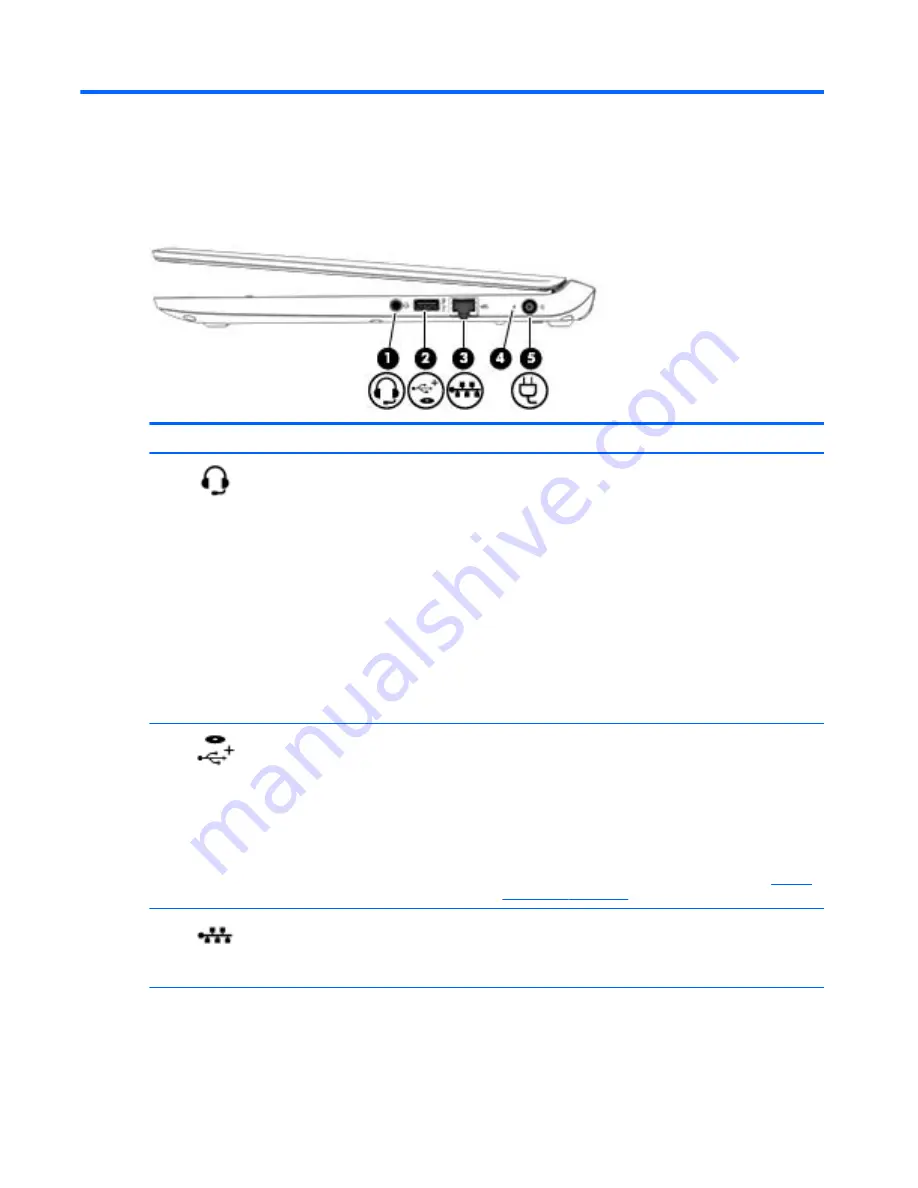
2
Getting to know your computer
Right
Component
Description
(1)
Audio-out (headphone)/Audio-in
(microphone) jack
Connects optional powered stereo speakers, headphones,
earbuds, or a headset. Also connects an optional headset
microphone. This jack does not support optional
microphone-only devices.
WARNING!
To reduce the risk of personal injury, adjust
the volume before putting on headphones, earbuds, or a
headset. For additional safety information, see the
Regulatory, Safety, and Environmental Notices
. To access
this guide, from the Start screen, type
support
, and then
select the HP Support Assistant app.
NOTE:
When a device is connected to the jack, the
computer speakers are disabled.
NOTE:
Be sure that the device cable has a 4-conductor
connector that supports both audio-out (headphone) and
audio-in (microphone).
(2)
USB 2.0 charging (powered) port
Connects an optional USB device, such as a keyboard,
mouse, external drive, printer, scanner or USB hub.
Standard USB ports will not charge all USB devices or will
charge using a low current. Some USB devices require
power and require you to use a powered port.
NOTE:
USB charging ports can also charge select
models of cell phones and MP3 players, even when the
computer is in Sleep mode.
For details about different types of USB ports, see
Using a
USB device on page 46
.
(3)
RJ-45 (network) jack/lights
Connects a network cable.
●
Green (right): The network is connected.
●
Amber (left): Activity is occurring on the network.
(4)
AC adapter/Battery light
●
White: The computer is connected to external power
and the battery is charged from 90 to 99 percent.
●
Amber: The computer is connected to external power
and the battery is charged from 0 to 89 percent.
4
Chapter 2 Getting to know your computer















































